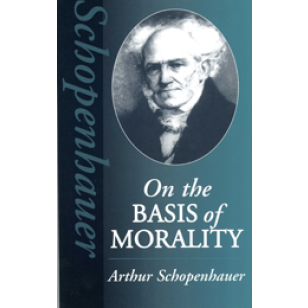On the Basis of Morality
"Schopenhauer’s On the Basis of Morality deserves to be a standard text for courses in religious ethics. It doesn’t fit into the prevalent genealogies of virtue ethics and utilitarianism, thus reminding us of other genealogies (pessimism, Nietzsche, Buddhism). It poses fundamental questions about the monotheistic background to the dominant ethical systems of the day as virtually no other work does. I have found that reading it after an intensive study of Kant’s ethical and religious writings leads to fantastic discussions, which open the floor for great insights into the relation of religion and ethics.”
—Mark Larrimore, Princeton University
This edition originally published by Berghahn Books.
Schopenhauer’s treatise on ethics is presented here in E. F. J. Payne’s definitive translation, based on the Hubscher edition (Wiesbaden, 1946-1950). This edition includes an Introduction by David Cartwright, a translator’s preface, biographical note, selected bibliography, and an index. For convenient reference to passages in Kant’s work discussed by Schopenhauer, Academy edition numbers have been added.
Reviews:
"Schopenhauer’s On the Basis of Morality deserves to be a standard text for courses in religious ethics. It doesn’t fit into the prevalent genealogies of virtue ethics and utilitarianism, thus reminding us of other genealogies (pessimism, Nietzsche, Buddhism). It poses fundamental questions about the monotheistic background to the dominant ethical systems of the day as virtually no other work does. I have found that reading it after an intensive study of Kant’s ethical and religious writings leads to fantastic discussions, which open the floor for great insights into the relation of religion and ethics.”
—Mark Larrimore, Princeton University


